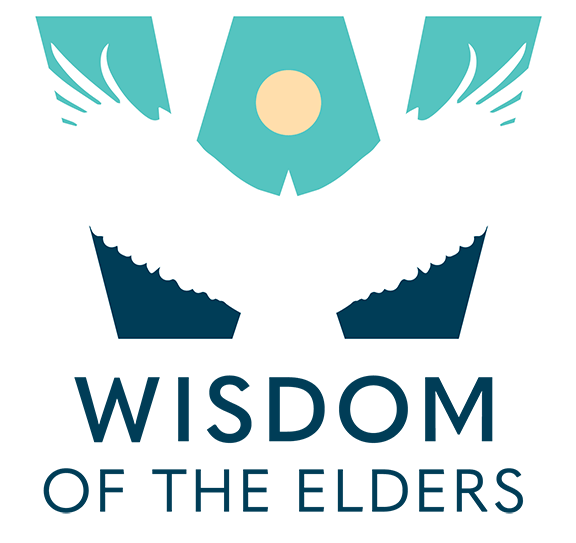Thomas Morning Owl
with Bruce Crespin
[audio:https://www.wisdomoftheelders.org/prog305/mp3/305_ac.mp3]Arlie Neskahi:
It is characteristic of Native people to artfully embellish the mundane, transforming everyday items into objects of beauty. Today, some Native people are given to learning an array of tribal skills, to help sustain their living culture. In today’s Artists Circle, Bruce Crespin talks with Thomas Morning Owl, a former general council chairman of the Confederated Tribes of the Umatilla Indians. Thomas shares his outlook on Tribal arts, woven from the material of his many gifts and talents.
Thomas Morning Owl:
We wanted our everyday things, the things that we used around us, to be beautiful. Whereas the European model is, you had art for art’s sake. Now what is, what, what good is the Mona Lisa as a um, basically a piece of canvas? You’ll never be able to make a bag out of it.
Bruce Crespin:
Thomas Morning Owl lives near Pendleton, Oregon, where he was raised. His mother is Umatilla and Warm Springs, and his father was from the Blood Nation of southern Alberta. When he was a child, Thomas took Tribal arts for granted, but today he connects with his heritage through his artwork.
Morning Owl:
I am an artist. I work in different mediums, both as you say, contemporary artist and traditional artist. I’m a basket weaver. I’m a cornhusk weaver. I hitch horsehair. I tan hides. I do beadwork. I do quillwork, make drums, compose songs, paint, sculpt, and many other arts that today are considered art. I’m a hunter. I’m a fisherman. I’m a horseperson, former rodeo man. So I’ve had a wide variety of experiences by which to draw inspiration from.
Crespin:
In his early years, Thomas spent a lot of time with his elders, and was exposed to the skills and artistry required by their traditional lifestyles.
Morning Owl:
I had grandmothers who helped to take care of us as children, who would sit and weave cornhusk, or weave bags, make baskets, or tan hides, making moccasins, all basically for everyday use.
Crespin:
Later in life, thomas has developed a great appreciation for his formative years.
Morning Owl:
The arts, as they’re considered in the American society and the way that they’re portrayed as something of more luxuriant by nature than everyday mundane articles. We find that to be not necessarily the case in Indian country and in the Native way of life, where all of your utensils. All the things that you use on a everyday pattern of life was, you made it look good. You made it be something that you’re happy to use. Something that brings you serenity. Something that brings you happiness.
Crespin:
Thomas draws inspiration from his elders and from the ancestral sites he visits such as the sacred petroglyphs that are found along the Columbia River Gorge.
Morning Owl:
On the Columbia River the petroglyphs that abounded along the river, that today are just a fleeting memory of those that happened to be alive at the times prior to the inundation of a lot of those places. As a generation since the damming of the river, we can only see it through the words of our elders. Now there’s only a very few places where some of that still exists. And when you look on those rock art in the places where they’re still available, it’s just like it’s the finger that touched that rock, the fingers that spread that paint are reaching through time to touch my heart.
And for however many generations back, we don’t know, but they’re still there. And it creates a bond to think that yeah, these was done by our people.
Crespin:
For Wisdom of the Elders, I’m Bruce Crespin.

